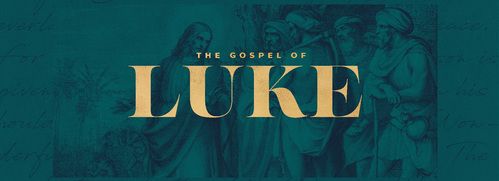Friday Devo

Scripture Reading:
1 John 1:1-3
We proclaim to you the one who existed from the beginning, whom we have heard and seen. We saw him with our own eyes and touched him with our own hands. He is the Word of life. 2 This one who is life itself was revealed to us, and we have seen him. And now we testify and proclaim to you that he is the one who is eternal life. He was with the Father, and then he was revealed to us. 3 We proclaim to you what we ourselves have actually seen and heard so that you may have fellowship with us. And our fellowship is with the Father and with his Son, Jesus Christ.
We proclaim to you the one who existed from the beginning, whom we have heard and seen. We saw him with our own eyes and touched him with our own hands. He is the Word of life. 2 This one who is life itself was revealed to us, and we have seen him. And now we testify and proclaim to you that he is the one who is eternal life. He was with the Father, and then he was revealed to us. 3 We proclaim to you what we ourselves have actually seen and heard so that you may have fellowship with us. And our fellowship is with the Father and with his Son, Jesus Christ.
Commentary from the ESV Study Bible:
1:1 From the beginning could refer to the time of Jesus’ birth or the beginning of his ministry. But it more likely refers to the predawn of time (see John 1:1), just as the Septuagint uses the same expression (Gk. ap’ archēs) to say that the Lord existed “from the beginning” (Hab. 1:12 lxx) and that the origins of the Promised One would be “from the beginning” (Mic. 5:1 lxx). In other words, John is pointing to Christ’s preexistence. seen … looked upon … touched. John was an eyewitness to the physical and historical reality of Jesus’ life on earth. His message is not based on an ecstatic vision, grand idea, or mere human religious conviction.
1:2 The repetition of made manifest (publicly seen and known) stresses the revelatory nature of Christ’s coming: he was sent from and revealed by God. Life … eternal life refers to the nature and quality of life in fellowship with God (cf. John 5:24), as revealed primarily in the life of Christ and then experienced secondarily by Christians. Such fellowship grows out of the vital and dynamic existence enjoyed by the Son with the Father.
1:3 John is moved to proclaim what he has witnessed in keeping with the commission he and other apostles received (Matt. 28:19–20; Acts 1:8). The purpose of this proclamation is not just forgiveness of people’s sins (as a simplified view of evangelism would have it) but is far richer, for the gospel message binds together those who receive it: so that you too may have fellowship with us. Yet the purpose is still richer than mere human fellowship, for believers’ fellowship is with the Father and with his Son. Such “fellowship” is personal communion with the Father made possible by the mediation of the Son.
1:2 The repetition of made manifest (publicly seen and known) stresses the revelatory nature of Christ’s coming: he was sent from and revealed by God. Life … eternal life refers to the nature and quality of life in fellowship with God (cf. John 5:24), as revealed primarily in the life of Christ and then experienced secondarily by Christians. Such fellowship grows out of the vital and dynamic existence enjoyed by the Son with the Father.
1:3 John is moved to proclaim what he has witnessed in keeping with the commission he and other apostles received (Matt. 28:19–20; Acts 1:8). The purpose of this proclamation is not just forgiveness of people’s sins (as a simplified view of evangelism would have it) but is far richer, for the gospel message binds together those who receive it: so that you too may have fellowship with us. Yet the purpose is still richer than mere human fellowship, for believers’ fellowship is with the Father and with his Son. Such “fellowship” is personal communion with the Father made possible by the mediation of the Son.
Study Questions:
- Throughout Luke 11, people have been continuously demanding more signs and proof that Jesus was the Messiah, and he kept telling them that they had all the evidence they needed. But he would ultimately give them one more sign. It was his resurrection from the dead. This IS the ultimate sign that he was, indeed, God. This is the cornerstone of our faith. Everything hinges on the resurrection. If Jesus didn't rise, then there is no faith. Have you ever been guilty of questioning your faith or the goodness of God based on your experiences or feelings rather than the historical evidence of his resurrection? How often do you remind yourself that he is alive and THAT is the basis of your faith in him?
- The amazing thing is that we, as followers of Jesus, don't have to believe anything based on blind faith. Many Christians may not realize this, but even the disciples needed evidence before they truly believed that Jesus was the Messiah. They had to see him risen from the dead to be fully convinced. And THEIR concrete evidence is now OURS. There is documented historical evidence, both inside and outside of Scripture, that those same disciples went to their deaths claiming to have seen him alive. They died refusing to deny something they had seen with their own eyes, not just for something they "believed." No one dies for something they know to be a lie. How does this affect your faith? How can you remind yourself of this truth on a more consistent basis so that you aren't tempted to doubt based on your feelings?
Pray:
- That your faith would be based on the evidence.
- That your faith would be strengthened and unshakable.
This Week's City 7:
Try to commit to memory!
3. Why did Jesus have to die on the cross? Since “all have sinned” and the “wages of sin is death,” Jesus had to die on the cross to pay the fine for my sin so I could be right with God.
(Romans 3:23, 5:8, 6:21-23, 2 Corinthians 5:21; Ephesians 2:1-6; Colossians 1:13-14, 21-22)
(Romans 3:23, 5:8, 6:21-23, 2 Corinthians 5:21; Ephesians 2:1-6; Colossians 1:13-14, 21-22)

No Comments